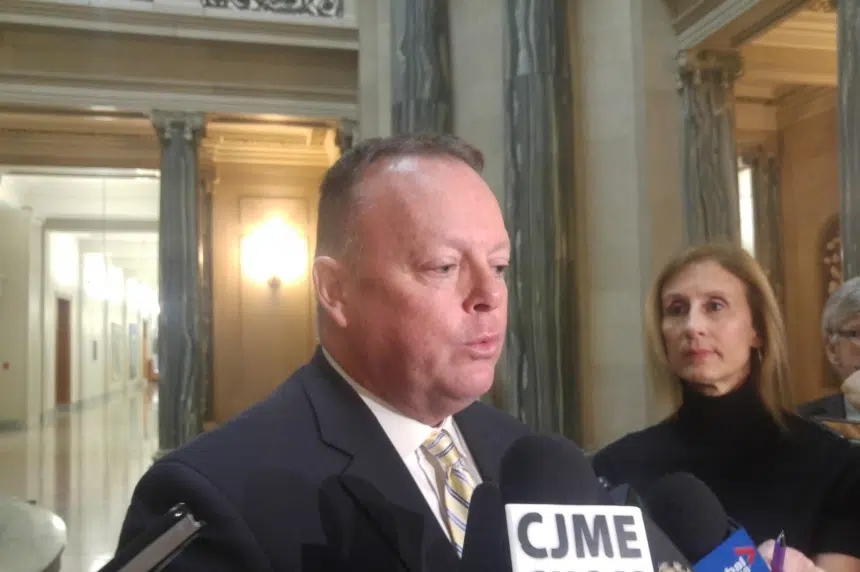Expect a bigger deficit, perhaps even in the billion dollar range.
Saskatchewan’s Minister of Finance Kevin Doherty said the province has lost $600 million in revenue.
“What that reflects is we have lower income tax coming in, lower corporate tax, fuel taxes are down, consumption taxes – that being the provincial sales tax – are down,” he explained.
“All combined, our forecast right now is down about another $400 million in this fiscal year since I brought out the budget on June first.”
The remaining $200 million is lost resource revenue. The province budgeted for the price of oil at $45 per barrel, which Doherty said “seems to be holding.”
But potash and uranium hasn’t been as lucky. Their prices have softened and there have been layoffs in the potash mines in Saskatchewan.
Doherty said money from the federal government will help offset some of the losses from the resource sector.
“Those are one-time revenues so we cannot build those into our base for ensuing fiscal years,” he said.
Doherty maintained taxes will not be raised this year. Instead, he said the provincial government cut spending.
“We’re not going to be doing anything on the revenue side during the course of this fiscal year. We campaigned on that during the most recent election just six months ago.”
However, Doherty said everything is on the table for the 2017-18 budget.
“It’s not necessarily tax increases, but looking at tax exemptions in the province.”
More will come out in the mid-year report, which is scheduled to be released later this month.
Sask. NDP Response
The provincial NDP said the government will be facing some tough decisions when it comes to finding a way to deal with the new deficit.
“This is something that they knew was coming,” NDP Finance Critic Cathy Sproule said. “They refused to disclose it before the election, they projected rosy numbers in the budget that was presented June 1 and I think it’s a complete letdown to the people of Saskatchewan to not be more forthcoming about what they knew.”
Sproule also said the government will need to find a way to diversify the economy and was critical of the Sask. government’s spending of the rainy day fund.
Bracing for impact
The Saskatchewan School Boards Association (SSBA) said the news is not “unexpected” and that it would not be surprised to see cuts to education in the province.
“We at School Boards understand the fiscal position that the province is in and we’ve been working very hard to find efficiencies within our operations for the past few years already,” said SSBA president Shawn Davidson.
“The sooner we know where their position is at, the sooner the school boards will be able to adapt to whatever reality we’re dealt.”
— With files from Britton Gray











